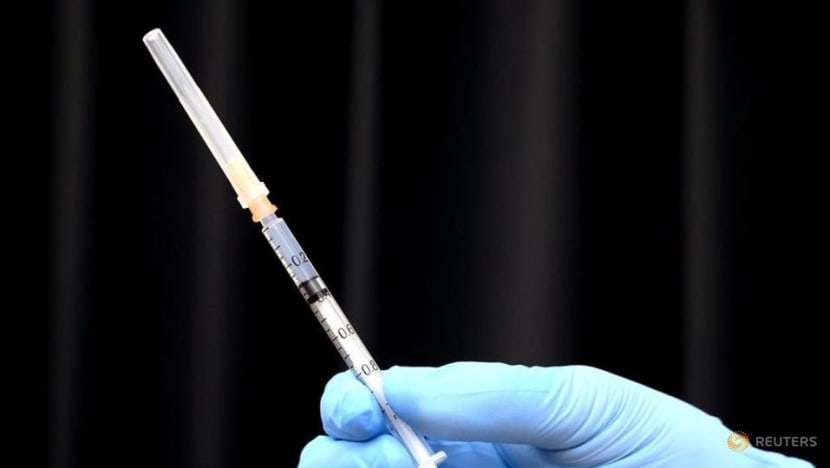How long does protection from COVID-19 vaccines last?

A syringe with a dose of the vaccine against the coronavirus disease (COVID-19) is displayed at the Tokyo Metropolitan Cancer and Infectious Diseases Center Komagome Hospital in Tokyo, Japan, on Mar 5, 2021. (Photo: Yoshikazu Tsuno/Pool via REUTERS)
NEW YORK: Given that COVID-19 vaccines were granted authorisation for emergency use relatively recently, experts are still studying vaccinated people to see when protection might wear off.
How well the vaccines work against emerging variants of the coronavirus will also determine if, when and how often additional shots might be needed.
“We only have information for as long as the vaccines have been studied," said Deborah Fuller, a vaccine researcher at the University of Washington.
“We have to study the vaccinated population and start to see, at what point do people become vulnerable again to the virus?”
So far, Pfizer's ongoing trial indicates the company's two-dose vaccine remains highly effective for at least six months, and likely longer. Pfizer's chief executive Albert Bourla said on Apr 1 that people will "likely" need a third booster dose within 12 months and could need annual shots.
Initial data has also shown that vaccines from Moderna retain most of their effectiveness for at least six months, though for how much longer has not been determined. Immunity should last for at least a year, the company said in January.
READ: Moderna says COVID-19 vaccine immunity to stay at least a year
Antibodies also don't tell the whole story. To fight off intruders like viruses, our immune systems also have another line of defense called B and T cells, some of which can hang around long after antibody levels dwindle. If they encounter the same virus in the future, those battle-tested cells could potentially spring into action more quickly.
Even if they do not prevent illness entirely, they could help blunt its severity. But exactly what role such “memory” cells might play with the coronavirus - and for how long - isn’t yet known.
READ: US preparing for 1-year COVID-19 booster shots; Pfizer chief sees need
While the current COVID-19 vaccines will likely last for at least about a year, they probably will not offer lifelong protection, as with measles shots, said Dr Kathleen Neuzil, a vaccine expert at the University of Maryland.
“It’s going to be somewhere in the middle of that very wide range,” she said.
VARIANTS
Even if that protection lasts far longer than six months or a year, experts have said that rapidly spreading variants of the coronavirus and others that may emerge could lead to the need for regular booster shots similar to annual flu shots.
The current vaccines are designed to work against a particular spike protein on the coronavirus, said Mehul Suthar of the Emory Vaccine Center. If the virus mutates enough over time, vaccines might need to be updated to boost their effectiveness.
So far, the vaccines appear protective against the notable variants that have emerged, though somewhat less so on the one first detected in South Africa.
READ: Singapore may have ‘further rounds’ of COVID-19 vaccination: Lawrence Wong
Singapore said on Thursday (Apr 22) that it may have to continue with “further rounds of vaccination even beyond this year to potentially deal with new strains of the virus.
It is also planning to give recovered migrant workers a single booster shot of the COVID-19 vaccine.
Earlier this month, the United States said it is preparing for the possibility that a booster shot will be needed between nine and 12 months after people are initially vaccinated against COVID-19.
If it turns out that people need another shot, a single dose could extend protection of the current shots or contain vaccination for one or more variants.
The need for follow-up shots will also depend partly on the success of the vaccination push globally, and tamping down transmission of the virus and emerging variants.
BOOKMARK THIS: Our comprehensive coverage of the coronavirus outbreak and its developments
Download our app or subscribe to our Telegram channel for the latest updates on the coronavirus outbreak: https://cna.asia/telegram










